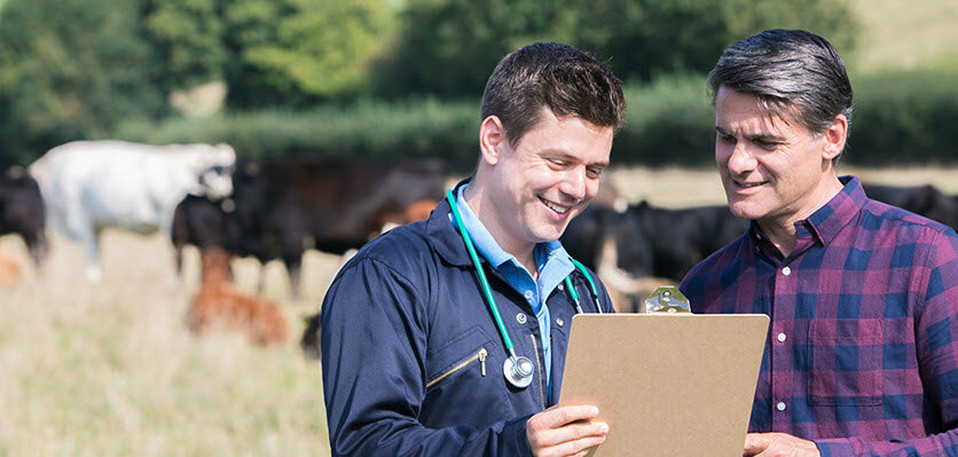Vets help to keep farms safe and sustainable
17 Jul 2017
This National Farm Safety Week, veterinarians are asking farmers to consider how they can better prevent, detect and manage animal diseases on their farms.
The theme this year is ‘creating a resilient, safe and healthy Ag community’.
President of the Australian Veterinary Association (AVA) Dr. Paula Parker said there is a range of diseases that pose a risk to the health of animals such as Salmonellosis and Johne’s disease. There are also zoonotic diseases that can pass from animals to humans and threaten human health, including Hendra virus, Q fever, and leptospirosis.
“Resilience, health, and safety in the agricultural community involves human health, animal health and sustainable and robust agricultural businesses.
“Veterinarians work with farmers every day to identify biosecurity, animal, and human health risks and advise on systems to prevent, monitor, and manage diseases in their livestock.
“A disease outbreak in a herd or flock comes at enormous short- and long-term costs to agricultural businesses. Prevention and risk management is essential to protecting livestock against disease,” Dr. Parker said.
Australian Cattle Veterinarians, a special interest group of the AVA, has developed BIOCHECK™, a new biosecurity plan that helps farmers to identify major risks to their farm and develop plans to manage them.
“As every farm is unique, it’s important for farmers to work closely with their veterinarian to ensure they have considered the risks specific to their farm. This allows them to then take a proactive approach to minimising these risks,” Dr. Parker said.
Dr. Parker also says that a focus on biosecurity as well as the prevention and control of animal diseases on farms also plays a key role in our fight against antimicrobial resistance (AMR).
“By improving disease prevention, we can significantly reduce the need for antibiotic use in sick animals.
“Australia is a global leader with respect to low-level of use of antibiotics in animals and while this a great achievement, we cannot afford to become complacent in our fight against antibiotic resistance.
“Australia must maintain a healthy and profitable agricultural sector and by limiting the impact of diseases on our livestock, we’re not only ensuring the health and welfare of Australia’s animals but we are also ensuring farmers continue to operate resilient and robust businesses,” she said.
For further information and requests for interviews contact the AVA media office on 0439 628 898 or media@ava.com.au.
The Australian Veterinary Association (AVA) is the only national association representing veterinarians in Australia. Founded in 1921, the AVA today represents 9000 members working in all areas of animal science, health, and welfare.
